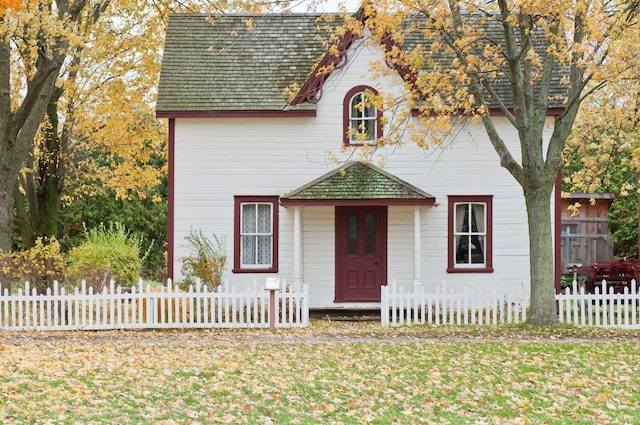When it comes to living in a 3-bedroom house, having a backup generator can be a lifesaver during a power outage. However, choosing the right size generator for your needs can be daunting.
In this article, we’ll explore the factors to consider when choosing the right size generator for a 3-bedroom house and how to calculate the size of the generator needed.
What Size Generator Do I Need For 3 Bedroom House?
A 3 bedroom house needs 3000 watts to 7500 watts generator for backup power. The power of the generator also depends on the demand and family members. If you have a large family then you need a larger backup generator.
| Family Member | Power | Recommended Generator |
| 2-3 Member | 2000-3000 watt | Generac IQ3500 3,500-Watt |
| 4-6 Member | 3000 – 6000 watt | Champion 4500-Watt Dual Fuel |
| 6+ member | 6000 + watt | Westinghouse 9500 Portable |
Based on the appliance, you could follow this chart to take a decision about which portable generator you may buy.
| Appliances | Recommended Generator | Starting Watt | Running Watt |
| Microwave (1000 watts), 10,000 BTU AC, Coffee Maker, Toaster, Chest Freezer, Laptop, TV | Generac IQ3500 3,500-Watt | 3500 | 3000 |
| Microwave (1000 watts), 10,000 BTU AC, Coffee Maker, Toaster, Chest Freezer, Laptop, TV, 800 Watt Microwave Oven, Blender, Air Fryer, Dishwasher 220W, Fan, light, Garage door opener | Champion 4500-Watt Dual Fuel | 4500 | 3500 |
| Microwave (1000 watts), 10,000 BTU AC, Coffee Maker, Toaster, Chest Freezer, Laptop, TV, 800 Watt Microwave Oven, Blender, Air Fryer, Dishwasher 220W, Fan, light, Garage door opener, Heater 1300W, High-Pressure Washer (1 HP), Air Compressor (1 HP), Vacuum Cleaner | Westinghouse 9500 Portable | 9500 | 7500 |
Factors to Consider When Choosing a Generator for a 3-Bedroom House
Power requirements: The power requirements for a 3-bedroom house will vary depending on the appliances and electronics that you have. For example, a refrigerator and freezer will require more power than a lamp or phone charger.
Size of the generator: The size of the generator will depend on the power requirements of your house. It’s important to choose a generator that can handle the full power requirements of your house.
Fuel type: There are different types of fuel used by generators, including gasoline, propane, and diesel. Each type has its pros and cons, so it’s important to consider which type will work best for your needs.
Noise level: The noise level of generators can vary, and it’s important to consider this when choosing a generator. Some generators are designed to be quieter than others, which may be important if you live in a densely populated area.
Cost: The cost of generators can vary widely depending on the size, fuel type, and brand. It’s important to consider the cost when choosing a generator, but it shouldn’t be the only factor you consider.

How to Calculate the Size of Generator Needed for a 3-Bedroom House
To calculate the size of the generator needed for a 3-bedroom house, you’ll need to determine your power requirements. Here’s how:
- Make a list of all the appliances and electronics that you’ll need to run during a power outage, including the wattage of each item.
- Determine the starting wattage and running wattage for each item on your list. The starting wattage is the power required to start the item, while the running wattage is the power required to keep the item running.
- Add up the starting wattage and running wattage for all the items on your list. This will give you the total power requirements for your house.
- Choose a generator that can handle the full power requirements of your house. It’s always better to choose a generator that’s slightly larger than what you need, rather than one that’s too small.
Sample Calculation
Let’s say that your 3-bedroom house has the following appliances and electronics:
- Refrigerator: 600 watts starting, 200 watts running
- Freezer: 800 watts starting, 200 watts running
- Television: 400 watts starting, 100 watts running
- Lights: 300 watts
To calculate the total power requirements for your house, you would add up the starting wattage and running wattage for each item:
- Refrigerator: 600 + 200 = 800 watts
- Freezer: 800 + 200 = 1000 watts
- Television: 400 + 100 = 500 watts
- Lights: 300 watts
The total power requirements for your house would be 2,600 watts. To be safe, you should choose a generator that can handle at least 3,000 watts.
FAQ
How big of a generator do I need to run a 3-bedroom house?
The size of generator you need to run a 3 bedroom house depends on your power requirements. Generally, a 3-bedroom house would require a generator with a capacity of at least 5,000 watts or more. However, it’s important to calculate the specific power requirements of all the appliances and electronics you want to power with the generator.
To calculate the appropriate size of the generator, you can add up the power consumption of all the appliances and electronics you want to run simultaneously during a power outage. This information can be found on the manufacturer’s label or in the user manual. Once you have determined the total power consumption, you should add a margin of safety, usually about 20% more, to account for the startup surge of some appliances.
Keep in mind that larger generators may be louder and more expensive than smaller ones, so it’s important to balance your power needs with your budget and noise tolerance. You may also want to consider the fuel type, as some generators run on gasoline, propane, or natural gas.
Consulting with a professional electrician or generator specialist can also help determine the appropriate size of the generator for your 3-bedroom house.
How many kW to power a 3-bedroom house?
The power requirement of a 3-bedroom house can vary based on several factors such as the size of the house, the number and types of appliances used, and individual energy usage patterns.
To estimate the power requirement in kilowatts (kW), you can use the formula: Power (kW) = Voltage (V) x Current (A) x Power Factor.
Considering the standard residential voltage of 120 volts in the United States, the power requirement for a 3-bedroom house can range from approximately 4 kW to 10 kW. This estimation assumes a power factor close to 1 (which is typical for most residential loads).
Conclusion
In conclusion, choosing the right size generator for a 3-bedroom house is crucial to ensure that you have enough power to run all of your essential appliances and electronics during a power outage. Or when living in areas with unreliable electricity supply. To determine the appropriate size of the generator, you should consider the power requirements of all appliances and electronics, as well as the fuel type, noise level, and cost.
Also Read:
- What Size Generator Do I Need For My House?
- Learn the calculation to find out the Amps of your generator
- Will 2000-Watt Generator Run Skill Saw or Circular Saw?
- Best Propane Generator
- Will 2000-Watt Generator Run Skill Saw or Circular Saw?
- What Size Generator to Run Refrigerator & Freezer?
Recent Posts
Yes, synthetic oil can generally be used in generators. It offers superior lubrication, improved resistance to temperature variations, and longevity compared to conventional oil, which can enhance...
In today's digital age, our dependency on computers and other electronic devices is undeniable. But what happens when a power outage occurs? This is where generators come in. However, is it safe to...
